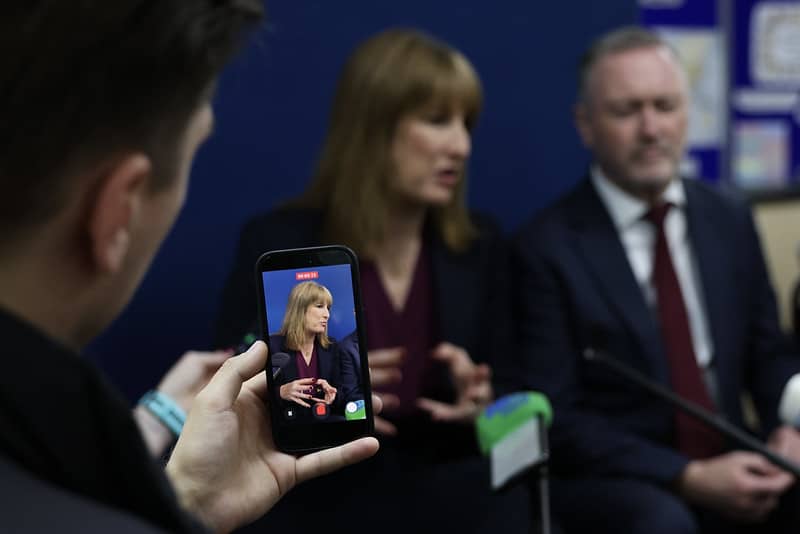
File image of Rachel Reeves. Picture by Simon Dawson / No 10 Downing Street.
Official growth data confirmed the UK economy slowed in the summer months.
Currency analysts tap the British pound to remain under pressure for the foreseeable future as slowing economy and pre-budget nerves present headwinds.
Official data released Thursday showed the economy grew 0.1% in August, but the previous month's growth estimate was revised lower to -0.1%. This is down from the 0.4% increase recorded in June, confirming a sudden loss of altitude.
"Today’s figures confirm that growth over the summer was slower than during the first half of the year. Activity remains patchy across sectors, with many businesses reporting subdued demand and higher operating costs," says Ben Jones, Lead Economist at the CBI.
The pound to euro exchange rate registered a slight dip in the wake of the release, hovering around 1.15. The pound to dollar exchange rate looks better bid, on account of a USD pullback overnight, trading near 1.3420.
However, both these key pairs are well off their summer highs and analysts see scope for further declines in the coming weeks on account of the UK's deteriorating fundamentals.
"Relative to its G10 peers, the pound has managed a fairly unremarkable performance in recent weeks. Like all other G10 currencies, it has lost ground vs. the USD and, while it is also trended lower vs. the EUR in recent weeks," says Jane Foley, Senior FX Strategist at Rabobank.
Slowing economic growth heaps pressure on Chancellor Rachel Reeves ahead of the November 26 budget, where she is expected to deliver a fresh round of tax rises.
Reeves conceded in an interview given to Sky News the UK economy was in a "doom loop" of annual tax rises being needed to fill annual black holes.
"Nobody wants that cycle to end more than I do," she said. Reeves said her priority was to grow the economy, as this would naturally shrink that budget gap without the need to adjust spending or taxes.
Without growth, the Chancellor must enact risky changes to the tax code which risk slowing the economy further.
Analysts at MUFG Bank have this week tipped Pound Sterling to "grind" lower as the economic slowdown pressures the Bank of England to cut interest rates again.
"Assuming inflation slows in October/November data and wages do not rebound, the justification for a rate cut will likely grow," says a note from the bank. "We see scope for the BoE to be in a position to cut in December."
"We maintain our view of a gradual increase in EUR/GBP into year-end as market positioning for a BoE rate cut increases," adds the bank.
Strategists at MUFG maintain a "long EUR/GBP" trade that seeks to profit from the euro's ongoing appreciation against the pound.
"In terms of EUR/GBP we would expect a test towards strong overhead resistance at 0.8751," says Jeremy Stretch, an analyst at CIBC Capital Markets.
A move to 0.8751 in EUR/GBP gives a decline in GBP/EUR to 1.1427.
"We continue to expect EUR/GBP to grind slowly higher into next year," says Rabobank's Foley. "The market has already been primed for bad news at next month’s budget."
